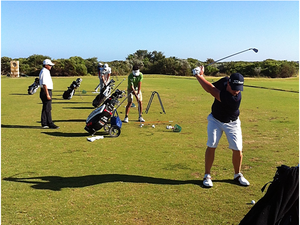 The golf ranges and practice fairways the world over are full of golfers from novice to expert practicing their golf skills in the hope of improvement. Unfortunately, most will turn bad habits into worse ones because they don’t know how to practice their golf skills to improve. You see there’s a big difference between just hitting buckets and buckets of golf balls hoping to get better, and practicing to improve your game. So let’s get the ball rolling right away by introducing you to a simple definition of golf practice that will help you to understand how you can improve your game; "The purpose of golf practice is to perform golf strokes--or execute specific golf training drills and routines repeatedly, in a deliberate manner, and on a consistent basis, in order to improve a specific skill set that can be transferred successfully to the golf course." 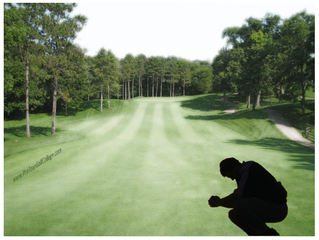 Don't Pray for Improvement, Plan for It So the thing to remember about golf improvement is that when you practice a golf skill you are always practicing it so that you can perform it better and more consistently on the golf course. Now I know that’s common sense but you would be surprised how many golfers just hit balls and almost pray that they will somehow miraculously discover improvement in their game. You can pray all you like, but it won't help because golf skill improvement requires a logical and well-thought out plan for you to improve--not divine intervention. So the following 5 logical steps to golf improvement will definitely improve your golf skills, and help you to transfer them successfully onto the golf course.  1. Design a Better Golf Improvement Strategy When you practice your golf skills recognize that mistakes will occur often and you should accept these mistakes without judgment or criticism. After all, you are allowed to make mistakes to get better aren't you? Instead of getting upset with yourself, seek expert feedback preferably from an experienced golf instructor who can accurately diagnose technical issues and provide you with helpful strategies for improvement. Now if it's not possible to obtain professional help, at the very least get your feedback from an accurate information source such as a video camera to help you to analyse your mistakes, and then design a better—more helpful strategy for improvement. Don't wing it, or take a stab in the dark at what you believe the problem is. Or worse still, rely on feedback from someone who could know less than you! You need accurate feedback. Accurate feedback is the fuel you need to drive your improvement from the range to the golf course, so it is essential you don’t see bad shots through a negative lens, or work with bad information, rather, always see mistakes as a way to design a better game. Don't react to bad shots by focusing your energy on why you hit them. Use the feedback as your way to redesign your stroke so that you can generate better and more consistent results on the golf course. 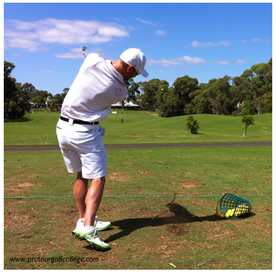 2. Identify 2 to 3 Weak Skills It will be helpful to identify 2 to 3 of your weakest golf skills that you know with improvement would guarantee better and more consistent results on the golf course. You can do this by ensuring that instead of just hitting practice shots with your favorite clubs every time you visit the range, you substantially increase the amount of stroke repetitions you make with your weaker golf skills. Now this won't be fun to do, but it is essential that you practice your weakest skills with the goal of upgrading them because you know that this process with time will guarantee better and more consistent results on the golf course. Practicing your weakest 2 to 3 skills is the surest way to better and more consistent performances on the golf course. 3. Stretch Your Weak Skills to Uncomfortable If you want to play better on the golf course, then you need to embrace the discomfort that is likely through stretching your weak skills into the uncomfortable zone when you practice. What this means is that you have to realize that changing the physical characteristics of a particular skill to improve it will take you at least as long as it took to get it there in the first place. And by practicing... a) Practicing with clubs you aren’t competent with; b) And practicing skills you aren't confident of; c) And practicing swinging a club in ways that you aren't familiar with. This is most certainly going to lead you to make more mistakes and be more uncomfortable. However you should remind yourself that no golfer ever got better at playing golf on the golf course without stretching themselves to uncomfortable places on the practice range. Where there is resistance in your learning, know that you are on the right track, and this resistance is slowly but surely helping you to improve how you play on the golf course. Be persistent, until your weak skills become strong skills.  4. Stay Away from Short-Cuts Whatever you do, don’t look for short-cuts to improvement by trawling through free golf instruction that you will find on search engines like YouTube and the other video platforms. You will never improve your game using random and jumbled information as this only guarantees confusion, and this confusion will dramatically slow down your improvement process. You must strive to get better by being patient with the improvement process by working conscientiously on improving the fundamentals of your weakest skills, preferably under the watchful eye of a knowledgeable golf instructor. There is no short-cut to success in anything worthwhile, and this is particularly true for improving golf skills. That being said, many golfers today are looking for short-cuts but you shouldn't be one of them. The right course of action is to accept the challenge of being the one golfer who will stay the course and learn your skills thoroughly. The only fast way to golf improvement is doing it better and for longer than the next golfer.  5. Increase Golf Practice Endurance No golfer every got really good at golf without lots of sweat equity, or hard work and perseverance. To build reliable golf skills on the golf course you need to develop your golf practice endurance, just like athletes do. Develop a consistent weekly golf practice schedule which focuses on building your weak golf skills into strong one’s by working hard on being as deliberate as you can. This means concentrating on each shot like it is the only one you will ever hit. This is not easy to do however, but it is essential. Being deliberate when you practice developing your golf skills increases your capacity to learn effectively and transfer your skills to the golf course sooner. Think of it like this. How many miles must a runner cover in practice to be able to run a marathon in under 3 hours? You would have to think it thousands of miles right? Well, how many deliberate practice strokes would you have to make to be able to transfer your skill/s successfully onto the golf course and be able to execute them confidently? Our suggestion is that fully 70 percent of your available practice time should be invested in improving your 2 to 3 weakest skills with the help of your instructor. You do this by working with a high level of commitment to performing each repetition as carefully and accurately as you can. 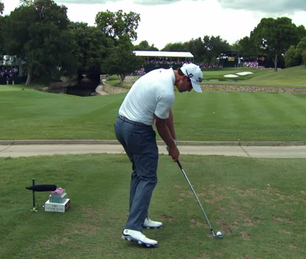 Final Thoughts It is never going to be enough to just practice mindlessly hitting balls on the driving range like many golfers do, with the hope that somehow you will discover a secret to better results on the golf course. This is never going to work out for you in the long run and this is not the way expert golfers do it. In the New Year your goal should be to isolate your 2 or 3 weakest skills, obtain accurate feedback from a reliable source such as a reputable golf instructor, design a better way to improve the skills, and put the time in that's required with a deliberate and focused attitude. It is only through focused and intensive effort like this, over a period of many months, that you will learn how to take your weak skills from the driving range, and transfer them into strong skills on the golf course. Lawrie Montague and David Milne - Pro Tour Golf College The Professional Golf Tour Training College for Serious Amateur Golfers |
Archives
June 2019
|
Proudly Supported By
Copyright © 2011 - 2018 Pro Tour Golf College
Website Managed By Golf Performance Media
All Rights Reserved
Website Managed By Golf Performance Media
All Rights Reserved


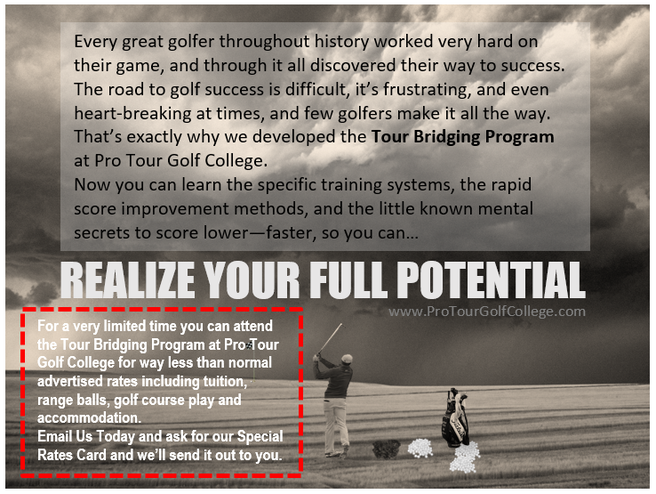
 RSS Feed
RSS Feed



